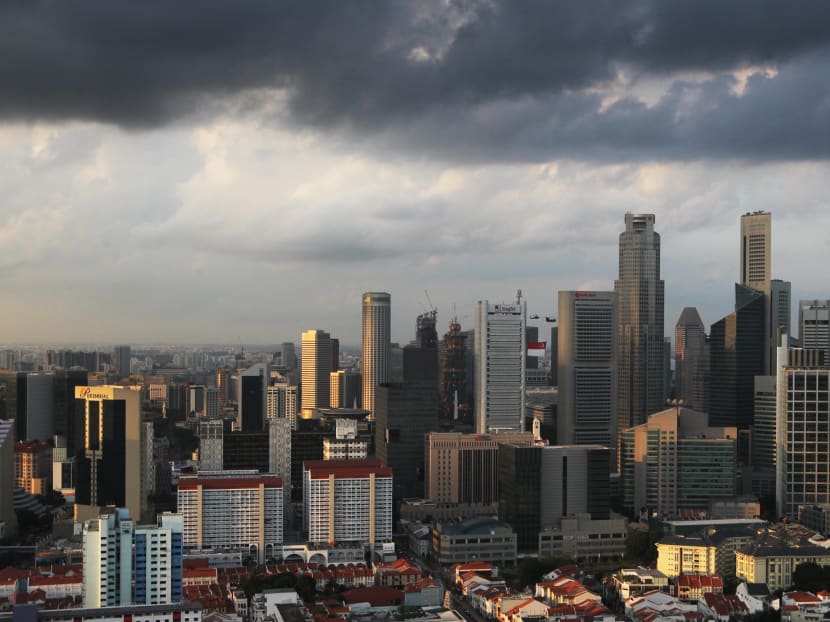'Slower growth but S'pore can still prosper'
SINGAPORE — The days of 5 to 6 per cent economic growth are behind Singapore, but the Republic can prosper if it responds well to a global environment that will be in constant flux with new technologies and competitors emerging, Prime Minister Lee Hsien Loong said. And part of the response, he added, lies in raising productivity – a national effort that must continue even though it has yet to bear fruits.

The Central Business District of Singapore bathed in evening light on 19 July 2014. Photo: Ooi Boon Keong
SINGAPORE — The days of 5 to 6 per cent economic growth are behind Singapore, but the Republic can prosper if it responds well to a global environment that will be in constant flux with new technologies and competitors emerging, Prime Minister Lee Hsien Loong said. And part of the response, he added, lies in raising productivity – a national effort that must continue even though it has yet to bear fruits.
In 2010, the Government set an ambitious target of achieving 2 to 3 per cent productivity growth per annum over the decade. Since then, the lack of progress in the country’s productivity drive has led to businesses and economists casting doubts on the Government’s strategy.
On whether it was time to relook the approach, Mr Lee said: “We have to persevere, it is not something that can happen quickly, but something which we have to continue working on. We have the schemes, we have the emphasis… There is no alternative to this.”
Mr Lee did not mince words in expressing dismay at the progress of the productivity drive in his recent New Year message - he had described the productivity performance as disappointing and warned that incomes would soon stagnate if there was no improvement. Nevertheless, he acknowledged during the interview the scale of the task, which is tough “because you are asking companies to change the way they are doing things”.
“They have to learn new skills and they may need a new organisation - they may not be able to operate as one little shop,” he said. “You may need to franchise or join together, you may need to change altogether and instead of having one waiter per table, you have self-service and the waiter just comes at the beginning and pours your coffee for you.”
The economy was a recurring theme throughout the 70-minute interview, and Mr Lee said that internationally, it is recognised that Singapore is a developed economy “so it is not possible to grow 5 to 6 per cent per year anymore”.
“If we can (grow) 2 to 3 per cent per year for the next five years, we are doing well. Domestically, we have to get used to what that means. Three per cent (growth) per year means your wages will go up correspondingly, gradually year to year - maybe not every year but over four, five years you will see improvements if we are successful in our policies.”
For its part, the Government will try to keep costs down and is also doing more to help the low-income groups.
Mr Lee noted that for the middle-income, efforts to keep the tax burden considerably low, for example, are succeeding when compared to Hong Kong and Australia.
This, he said, means that “what you earn, you keep, rather than I spend on your behalf. If we can maintain that, then we can improve our lives progressively. If we cannot maintain that, we go to zero growth - I think we have a problem”.
With the outlook still murky for the major economies of the United States, China and Japan, Mr Lee said the global economy would be uncertain for a long time to come. “The global economy is never going to be certain, I mean, when everybody thinks that things are going swimmingly well, that is when you should get very worried that we are not paying attention to some danger and we are about to crash into something pretty soon,” he said.
“That was the situation before 2007 and everybody thought things were well, markets were brilliant and all making money and then you ran into a serious disaster.”








